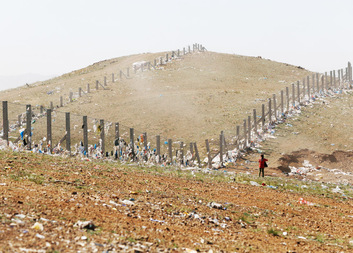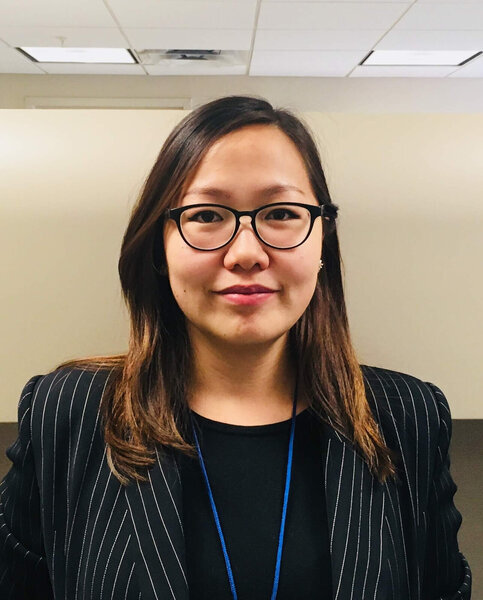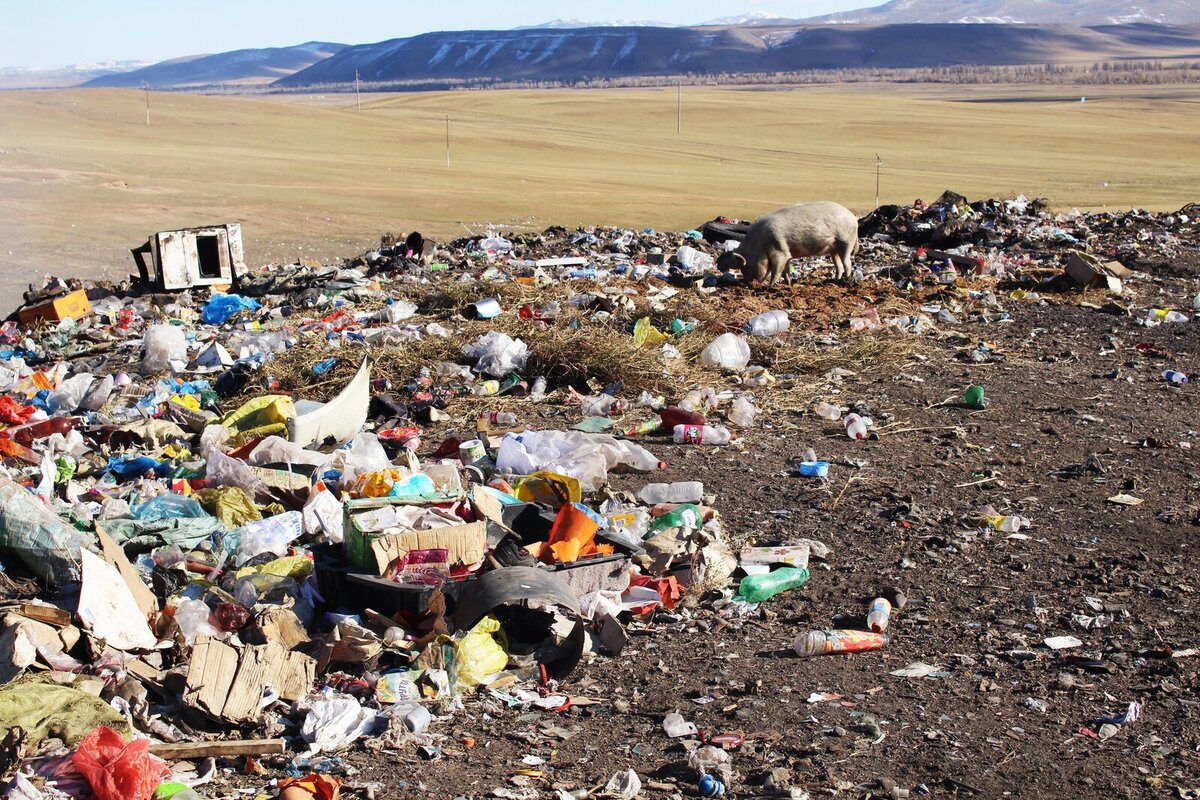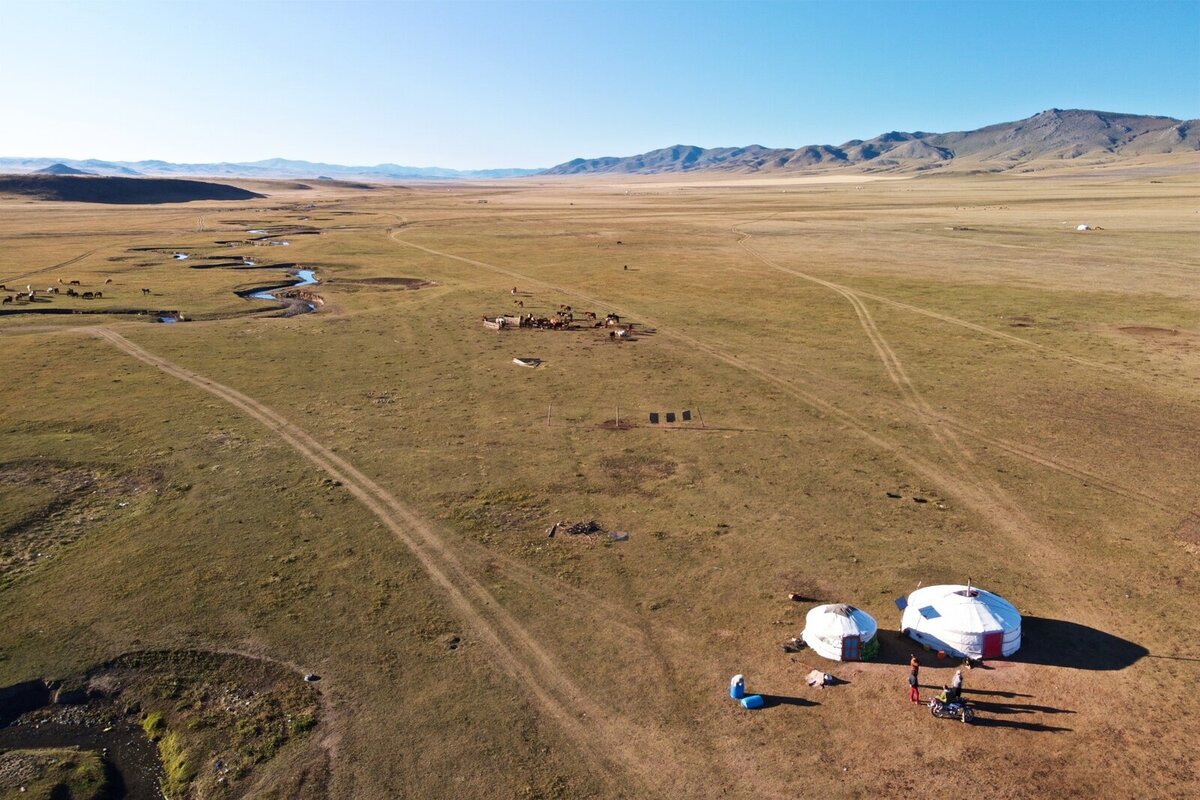Mongolia – beautiful and unique nature, huge grasslands, nomads and typical yurts. Lately, there have also been unfortunately another words to describe the country – quick devastation of the environment. Mongolia is starting to get flooded with trash and the situation is the worst especially in the famous grasslands. Mijidsuren from our office in Mongolia will tell us how is Caritas helping to protect local nature.
Mijidsuren Chimeddorj works as a project manager at Caritas Czech Republic in Mongolia. In the following interview, she shares how is Caritas that is trying to clean up Mongolia and what is the situation with recycling in her country. You will also find out how can people from Czech Republic or tourists travelling to Mongolia help.
Why is sustainable waste management so important and why is it an issue in Mongolia?
We do not have a recycling system in place so currently, almost all waste is collected and dumped at an unofficial and uncontrolled landfills and after that it‘s burned. There were over 20 recycling factories in Mongolia but several of them have unfortunately closed down due to the financial stresses that the Covid-19 pandemic has brought. However, even with the factories, due to the lack of an existent recycling system, people have to manually collect plastic waste from the landfills and then send them off to the recycling factories – which is not very sustainable.
What implications could poor waste management have on the environment and on the people?
Dumping plastic and not disposing it in the right way of course means that the plastic (which is not degradable) pollutes the environment and the ecosystem. It takes unbelieavable amount of time for plastic to naturally degrade and this poses a threat to the beauty of the Mongolian nature. Moreover, a lot of Mongolians both in the cities and in the outskirts get their drinking water from wells and if the soil is polluted from waste (which is a very common issue), the water is polluted too – which is toxic to the people.
Is Mongolia trying to do something to reduce the plastic pollution?
In 2017, the government created the 2017 Law on Waste Management and included clauses about recycling. However, although the duty to recycle is now officially embedded in the law, no one really follows it and many people are not aware of this law. Therefore, since this has been implemented, there have been many campaigns and activities to encourage households to sort their waste at the source – in their homes.
Is Mongolian public interested in sustainable waste management?
In recent years, there has been an increased awareness of recycling and sorting waste. This is also due to the fact that we have a few vocal activists that serve as rolemodels. They spread awareness using social media and encourage people to recycle and be more mindful of the planet and the environment. However, changing habits of people is very difficult and time-consuming.
How does Caritas help with reducing waste in Mongolia and at the same recycling it?
Our main aim is to promote circular economy and to encourage people to sort at the source so that the recycling factories have a steady supply of raw materials. We try to involve younger people, including pre-school and school children, since they’ll hopefully bring the newly learned habits from school back home. Our project on waste management funded by EU SWITCH-Asia is called Sustainable Plastic Recycling in Mongolia, which we, in cooperation with four partner organizations, including one from the Czech Republic, kicked off last May and that will take place over the next four years. However, because of Covid, we faced a lot of delays and challenges in our first year.
How is the project going on so far?
Last year, we focused a lot on baseline studies. From the questionnaires we collected, it could be concluded that many households in different areas are not informed on sorting waste and did not even have any basic tools to recycle. Therefore, we provide them with the basics for sorting their waste and we organize various trainings to teach not only households but also civil servants on how to effectively sort and recycle. Also, we focus a lot on the relationships with all the main stakeholders in the proces of recycling and waste management. The main idea is to encourage local people and businesses to sort their waste and to connect them with companies that will actually recycle it.
What exactly is your job description?
I oversee all the activities that take place under the Sustainable Plastic Recycling in Mongolia project, report to the Country Director as the project manager and communicate with various stakeholders and our target group. My responsibilities mostly lay in making sure we are following our activity plan.
Why should the issue of plastic pollution in Mongolia matter to the European countries when it’s so far away from us? How can we serve as an example of how recycling should be done?
Managing waste and especially plastics is a global issue and one which each and every country has to find a suitable and an effective solution. And that is exactly why it should matter to the European countries. After all, we all live on the same planet and this issue needs can be resolved as a global team. It’s amazing that the Czech Republic and the European Union are able to assist countries like ours and help us on our path. Europe has, unlike Mongolia, years of experience in sorting waste and therefore the western countries often serve as an example to our country of how recycling should look like.
Mongolia is a popular tourist destination and after the pandemic (when it’s possible), tourists will hopefully want to travel there again. Is the plastic pollution something that might affect tourism as well?
It surely affects tourism as well. Just one example, nomads in the countyrside are unfortunately not accustomed to sorting their waste at all and yet use of plastic has become very common. Since they‘re nomads, they move often, following the pastures and tend to leave behind a trail of waste. I would imagine that seeing open landfills and flying waste all over the countryside would be quite off-putting for the tourists.
Can tourists help fight the plastic pollution too? How?
Tourists can for sure contact us to learn how to sort their trash and make sure that it gets sent off to a recycling centre and not to a landfill. Tourists can also play an important role in raising awareness. If the tourists have a social platform like Youtube with a significant following, they can use their voices to highlight the issue and say „Guys, you have such a beautiful land, you have to recycle and make sure to preserve it as it is“. Sometimes, locals don’t see the issues around them, since they’re so used to it – and outer perspective might help.










